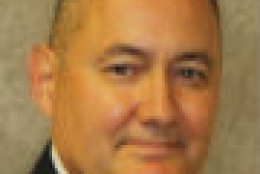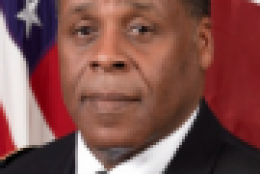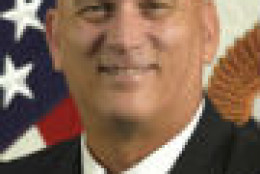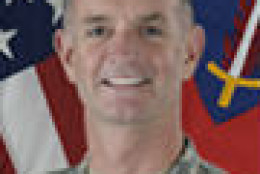Army
-
The Office of Special Counsel recently found the Army had discriminated against transgender civilian employee Tamara Lusardi. Lusardi, a quality assurance specialist, faced what OSC described as "frequent" and "pervasive" harassment on a daily basis. The Army didn't admit to prohibited personnel practices, but it did agree to start diversity and sensitivity training. Larry Youngner is a partner at the law firm Tully Rinckey. He joined Tom Temin on the Federal Drive to discuss the implications of the case.
October 30, 2014 -
By the end of next year, the Army will install advanced electric meters at most of its large buildings, giving the service much more detailed data on how it uses energy than it's ever seen before.
October 23, 2014 -
On this week's edition of On DoD, an update on the Army's efforts to modernize its tactical networks.
October 22, 2014 -
The Army's network integration exercises will emphasize more lab testing and less integration during the NIE itself. Future NIEs will be biased toward programs of record, not off-the-shelf technologies.
October 22, 2014 -
Is the Army really conducting a reverse auction for Catholic priest services?
October 17, 2014 -
The churn among federal CIOs and others in the IT community has been uncommonly high over the last year.
October 17, 2014 -
The Army brought its top brass to Washington this week for its annual Association of the U.S. Army Expo. Among the dignitaries, an unusual recipient of the Medal of Honor. It's typically given to service members within three years of their heroics in battle. In the case of 80 year old retired Special Forces member Bennie Adkins, it took nearly five decades. Adkins tells Emily Kopp how he learned he would receive the nation's highest military award.
October 17, 2014 -
For now, push-ups and math scores are the main methods the Army uses to screen potential recruits. But officials say they are studying measures that take a "whole person" approach identifying future soldiers.
October 15, 2014 -
Sometimes you have a plan but contingencies come up and force you to change. That's the situation the Army finds itself in. The service is taking a close look at how budget constraints and blossoming global conflicts are forcing it to adjust. Army Lt. Gen. Michael Williamson is military deputy to the Assistant Secretary of the Army for Acquisition, Logistics and Technology and director of Acquisition Career Management. He spoke with Emily Kopp at the Association of the U.S. Army Expo.
October 14, 2014 -
Only a few weeks ago, Army leadership was planning to shrink its force to levels unseen since before World War II. But that was before Islamic State terrorists threatened to take over Iraq and Syria, before Russia invaded Ukraine and before the U.S. began deploying 4,000 troops to West Africa to help control the Ebola outbreak. Now the Army's Chief of Staff, Gen. Ray Odierno, suggests the Army and political leaders need to rethink their plans. He spoke with Emily Kopp at the Association of the Army Expo about the Army's next steps.
October 14, 2014 -
The United States is teaming up with NATO allies and partner countries in Eastern Europe for training exercises and logistics collaboration. The exercises take place frequently, but now there's added tension. Namely, sustained aggression from Russia against Ukraine. The U.S. actions fall under a strategy umbrella called Operation Atlantic Resolve. Maj. Gen. Walter Piatt is deputy commanding general of Army Europe and Commander of Army NATO. He spoke with Emily Kopp at the Association of the Army Expo.
October 14, 2014 -
As part of a project dubbed Command Post 2025, the Army wants to begin running complex modeling and simulation programs on the battlefield, using low-power devices in austere conditions.
October 10, 2014 -
Janet Hill, principal at Hill Family Advisors, sits down with the Women of Washington radio show to discuss the importance of diversity in American corporations and her famous Wellesley classmate - Hillary Clinton.
October 08, 2014 -
The Army is the latest federal organization to lay out a career path for its cybersecurity leaders. Career Field 17 will offer soldiers that career path. Advocates of professionalizing the cyber workforce believe that would feed talent pipelines with the people agencies need to succeed. Lt. Col. Sean Kern is cyberspace operations officer, and a graduate student at the Joint Advanced Warfighting School at Joint Forces Staff College at the National Defense University. On In Depth with Francis Rose, he said the main cyber problem right now is a people problem.
October 01, 2014 -
The leader of the Army's new Cyber Center of Excellence says his job is not merely to build the cyber workforce, but to integrate that up-and-coming capability with the Army's existing signals and intelligence disciplines.
September 26, 2014








